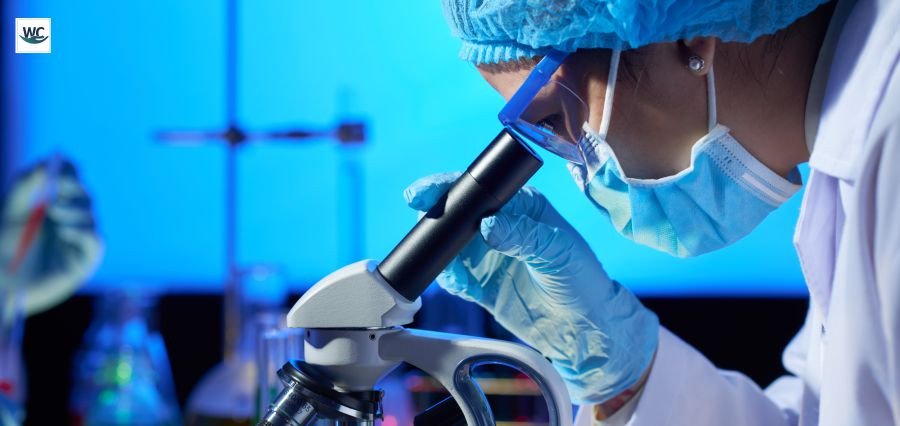- December 18, 2025

The Future of Biotechnology is the gateway to the redescription of working, living, and being related to the world in which we exist. Keeping pace with the advances in science and technology hurtling along at breakneck speeds, biotech is transforming health, agriculture, industry, and the protection of the environment. From healing once fatal diseases to creating green products and ending hunger, biotechnology will also most probably resolve some of the most intractable 21st-century challenges. Over the next few years, innovation here will not merely re-shape our potential but re-make human destiny in bold and profound terms.
Gene Editing: The Age of Precision Medicine
The leading edge of Biotechnology's future is gene editing in the form of CRISPR and its descendants. These technologies enable scientists to precisely cut DNA, thereby making treatment for genetic disorders like muscular dystrophy, sickle cell disease, and cystic fibrosis feasible. The process is more precise and safer with the base editing and prime editing revolution. Apart from medicine, gene editing is also used to create drought-, pest-, and nutrient-resistant crops to make food more sustainable and accessible to the world's growing population.
Synthetic Biology: Life Engineered
Synthetic biology is enabling scientists to engineer biological systems ab initio. Synthetic biology is an intersection of computer science, engineering, and biology to redesign living organisms for useful functions. The Future of Biotechnology is the creation of tailored microbes that can be used to make vaccines, break down oil spills, and manufacture biodegradable products. The technology has already yielded new prospects like lab-grown meat and programmable cells. Synthetic biology will be the solution to industrial and environmental problems with bio-based solutions through improved methods and devices.
Bioprinting and Regenerative Medicine
The intersection of 3D printing and biotechnology has witnessed unforeseen growth in bioprinting. It is the art of creating organs and tissue by making use of cells and biological building blocks. It can give rise to new types of regenerative medicine. From bone implant to skin transplant, Future of Biotechnology believes that printing entire human organs customized just for individualized patients is possible. It not only reduces the reliance on donors but also the overall organ rejection rate. More of such research can make transplant medicine and personalized medicine history. Artificial Intelligence in Biotech
Artificial Intelligence (AI) is soon going to be the most crucial element for the Future of Biotechnology.
From drug discovery to predictive diagnosis, computer software using AI can search huge biological databases and find patterns and solutions much faster than with standard methods. Machine learning mimics bioprocessing and monitors conditions of production in real time. Such products allow businesses to make biologics and vaccines less expensively and with better quality control. With every move towards their precision, AI technologies will be introducing more and more of their introduction into biotechnology. Personalized and Precision Medicine
With genomics and analytics, the future of biotechnology is highly personalized medicine. Personalized medicine is tailored to take into account the genes, environment, and behavior of an individual in order to provide treatment plans to them. This minimizes side effects as well as increases efficacy. Live tracking, targeted diagnosis, and wearable medical monitors are transforming the diagnosis and treatment of diseases. With such personalization, medicine in the future will be all about evolving from reactive treatment to preventive and predictive therapy.
Environmental and Industrial Biotechnology
Biotechnology's Future standard is sustainable decision-making.
Biotech technologies are employed to reduce greenhouse gases, clean water, and manufacture biodegradable bio-plastics. Microorganisms are genetically engineered to employ in the utilization of farm wastes to fuel or chelate poisonous heavy metals from contaminated soil. Industrially, enzymes are employed to replace chemically energy-consuming production with clean and more productive manufacturing process. They combat climate change, and they create green opportunity for innovation. Biomanufacturing and Cell-Based Production
Biomanufacturing is the manufacture of advanced molecules such as proteins, enzymes, and antibodies in the presence of living cells.
The technique in drug applications is used to produce vaccines, insulin, and cancer therapy. The Future of Biotechnology will see cell-based systems scaled for efficiency, standardization, and greater availability. Technologies such as precision fermentation are maximizing yield and reducing costs. The revolution has to occur in biotech manufacturing so that we can provide global health and nutritional needs. The Future Role of Quantum and Nano Biotech
As new frontiers are discovered, nanobiotechnology and quantum technologies take the center stage.
Nanoparticles are being engineered that will deliver medicine to only ill cells while leaving healthy tissue alone and the treatment as effective as possible. Quantum sensors also have potential for ultra-sensitive biomarker detection that will bring the advances of past disease diagnosis and monitoring. These emerging technologies are the future of Biotechnology's cutting edge, looking at what can be done with science. Conclusion
The Future of Biotechnology is not technology innovation, but envisioning the future of a healthier, cleaner, and greener world.
From life-saving medicine and smart agriculture to clean manufacturing and much more, biotechnology is transforming all sectors of our future. And so, with these technologies being removed from the laboratory into the world, we also have to contend with the ethics, regulatory environments, and access for those who need most. The coming decade would be revolutionary-decade when Future of Biotechnology would enable human beings to solve some of its most intriguing world issues and improve the health of generations to come.